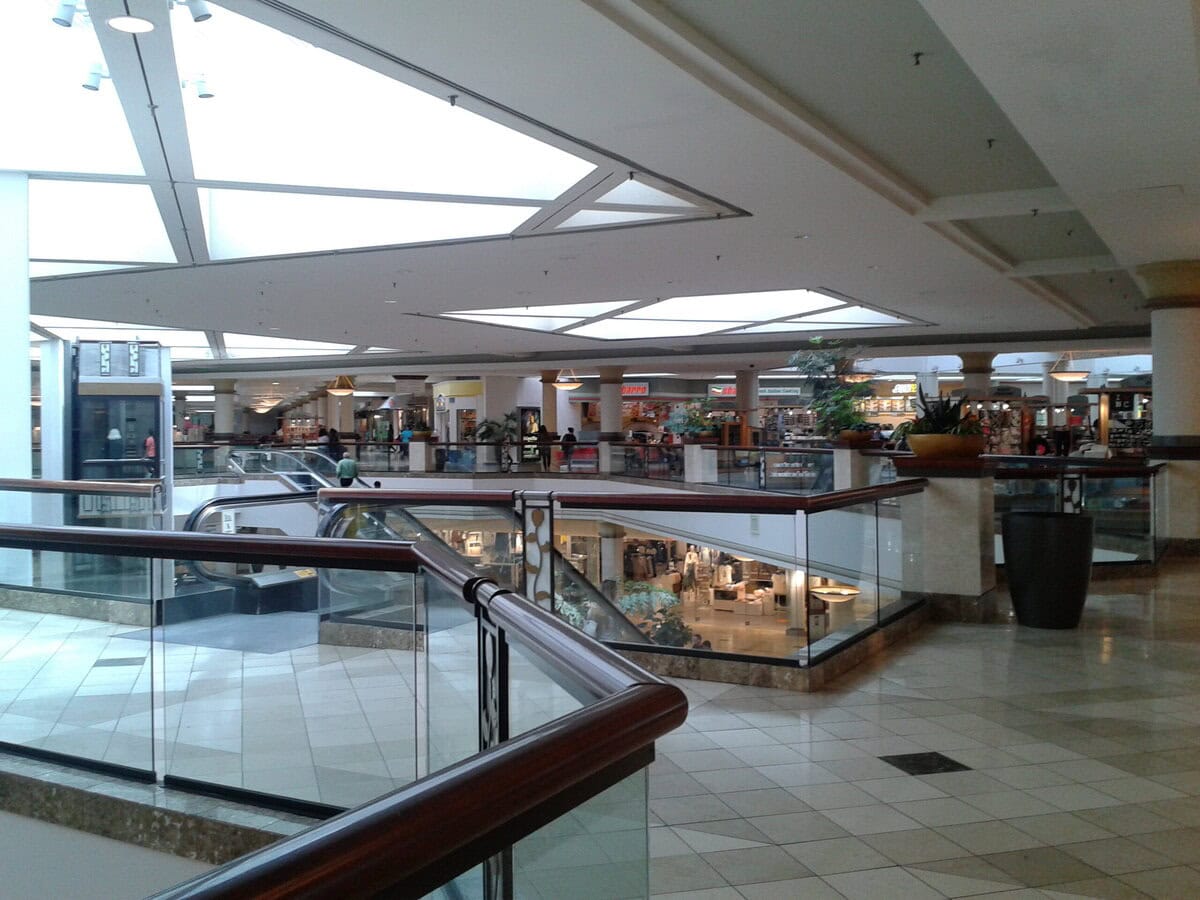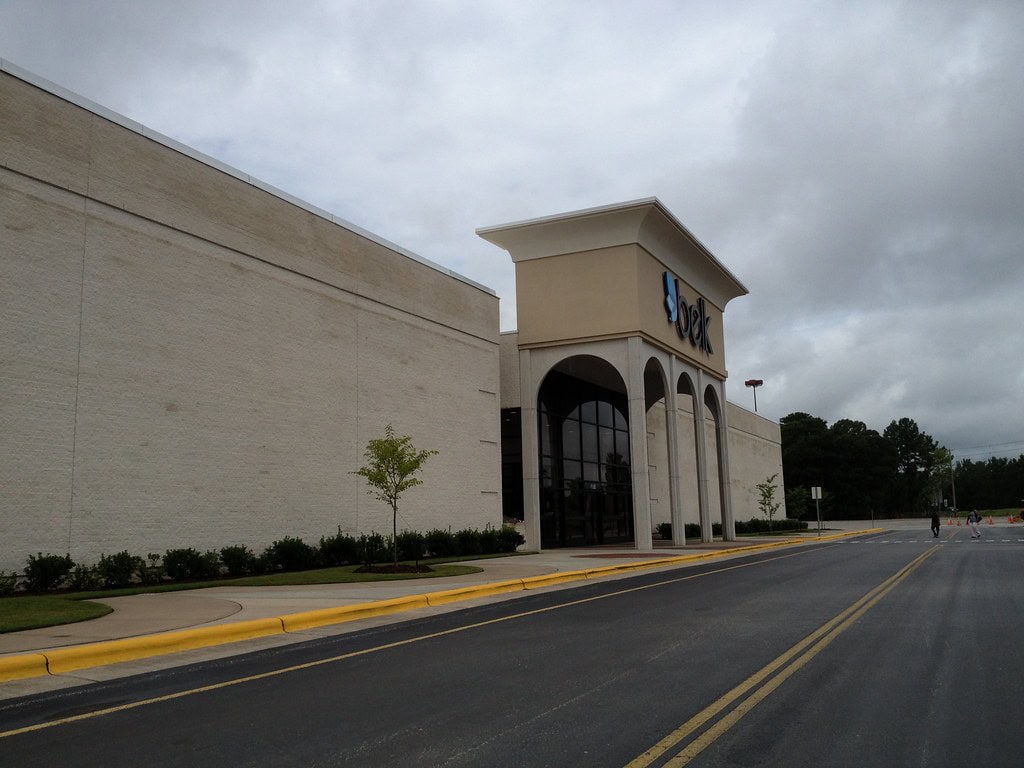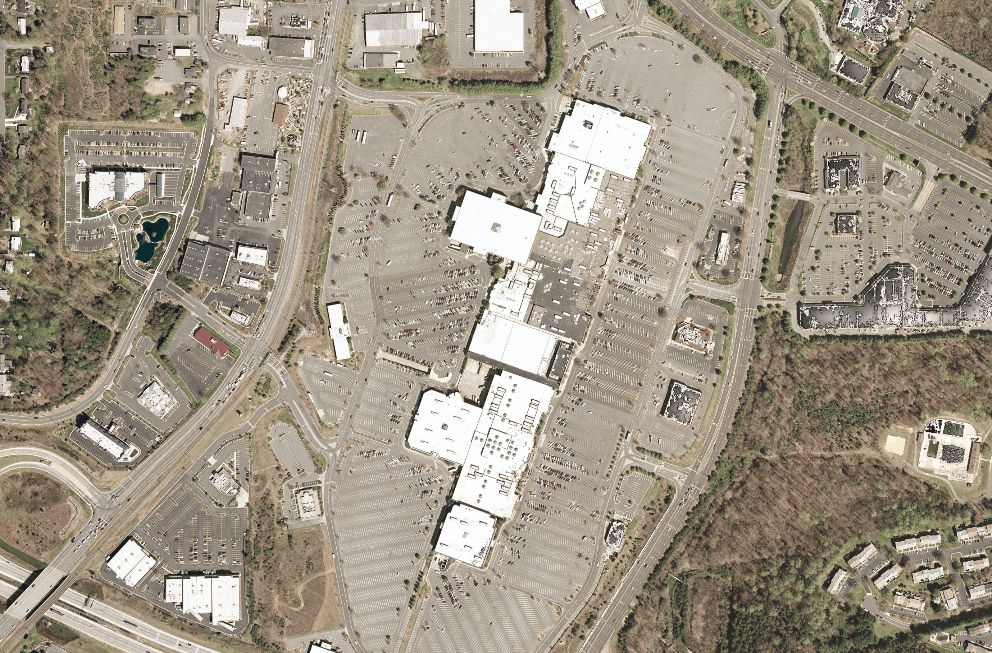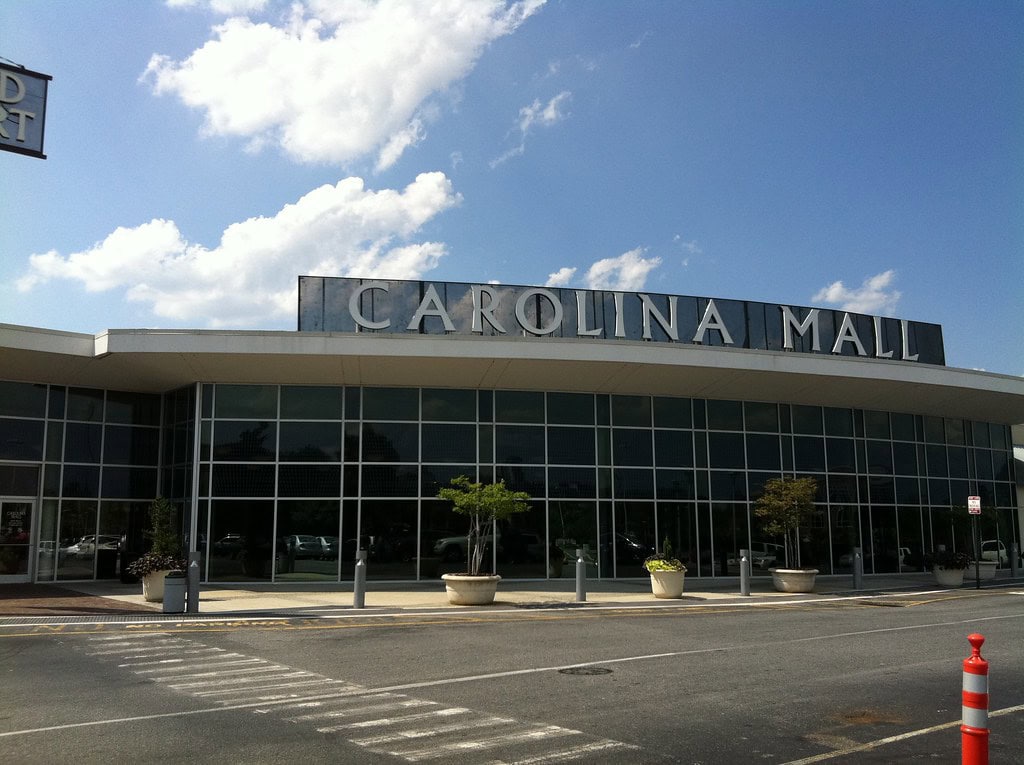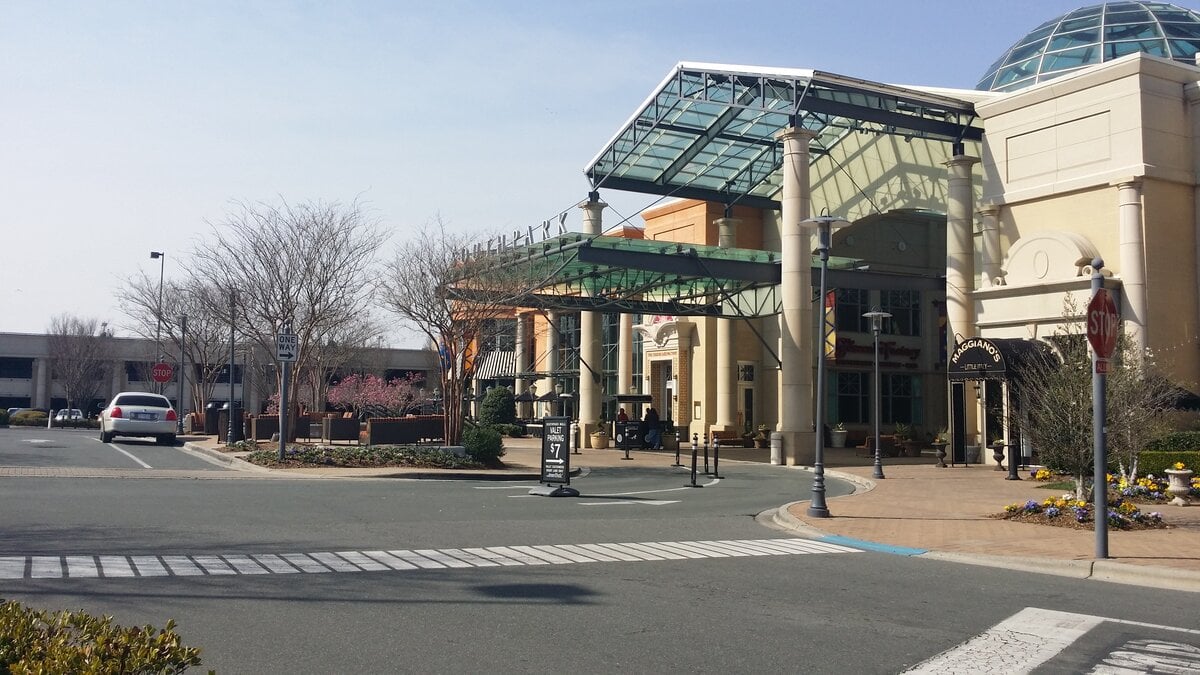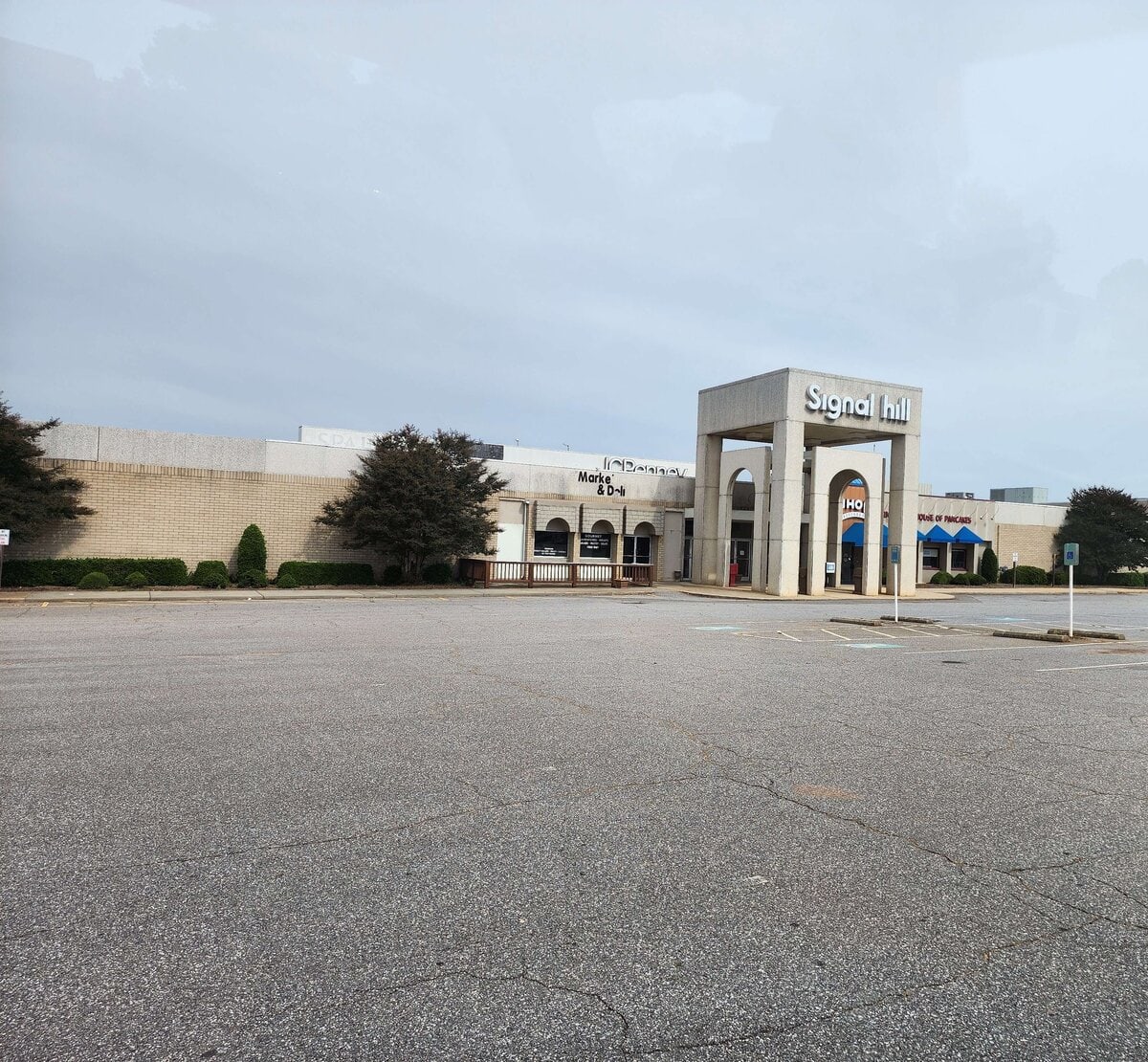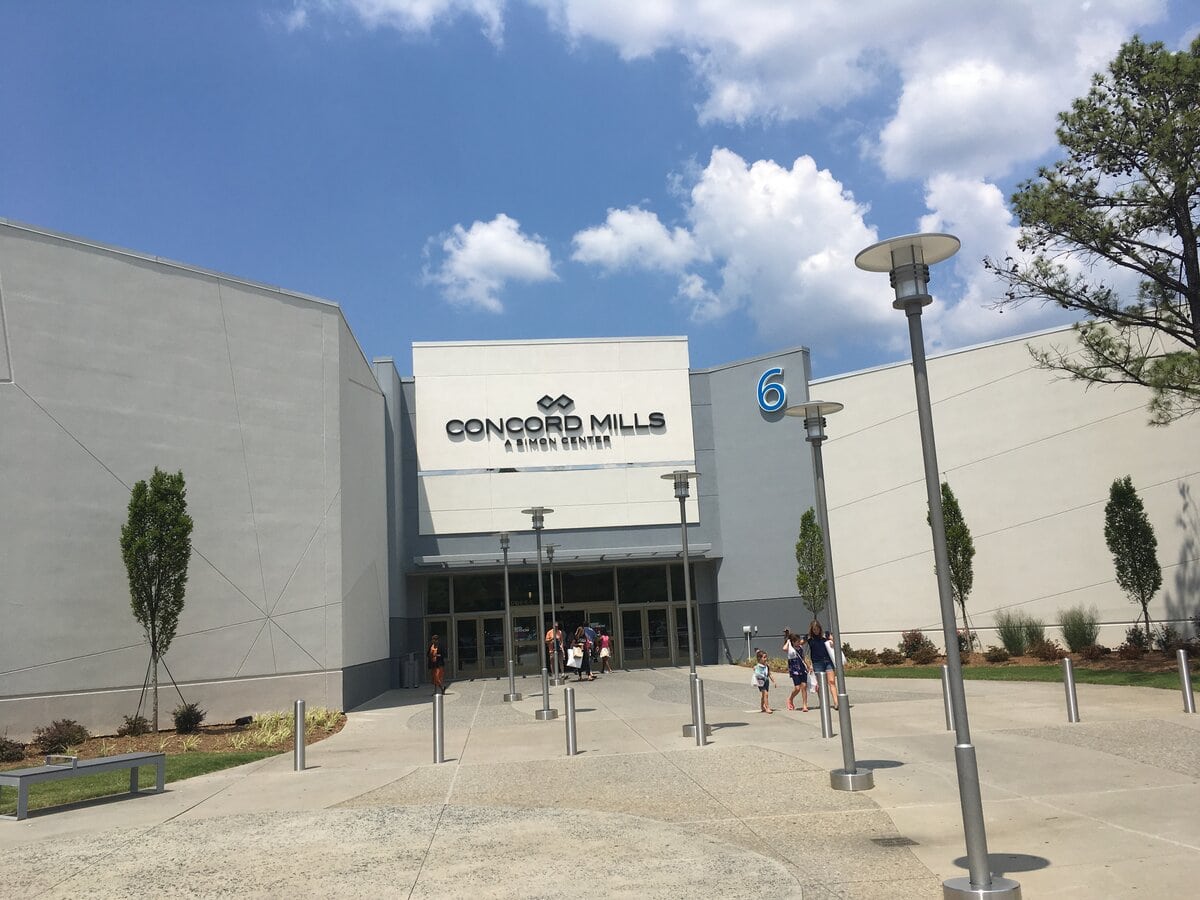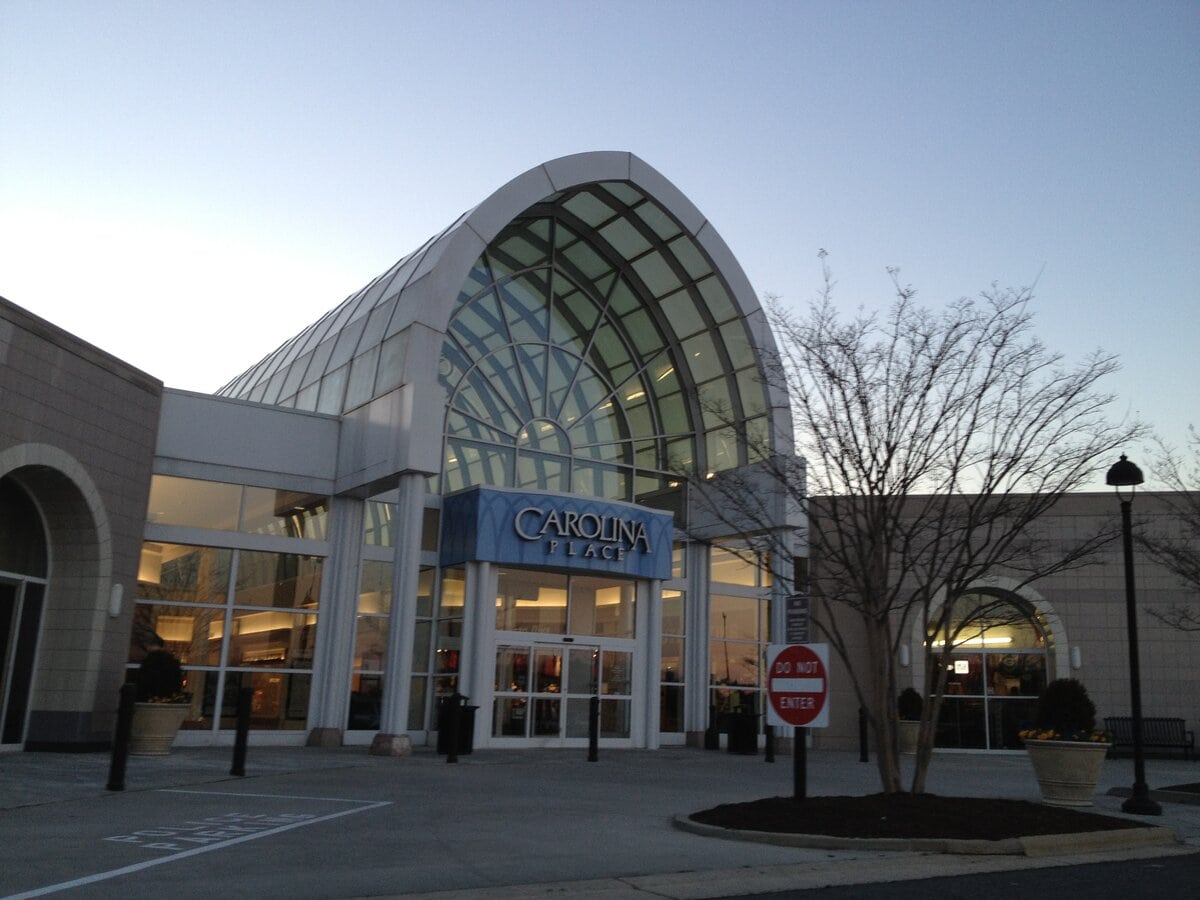Retail Boom: The Rise of University Mall (1973-1990s)
University Place, originally known as University Mall, opened in 1973 as Chapel Hill's first enclosed shopping center.
Developed by E.N. Richards, the mall was designed to bring a modern retail experience to the growing town. It is located just two miles northeast of downtown and the University of North Carolina at Chapel Hill.
At the time, the project aligned with a broader trend of suburban malls drawing in shoppers with a mix of department stores, specialty shops, and convenience-based retailers.
When the mall debuted, it had 78 stores and was anchored by Belk-Leggett Horton, Ivey's, and Roses, a discount department store catering to budget-conscious shoppers.
The single-story layout made for easy navigation, with retailers spread across the 366,000-square-foot space.
The mall's combination of major department stores and smaller specialty shops helped establish it as a go-to shopping destination.
Through the late 1970s and into the 1980s, University Mall maintained a steady mix of national and regional retailers.
Chain stores like The Limited, RadioShack, and Waldenbooks brought in foot traffic, while locally owned businesses added variety.
The mall also became a hub for seasonal promotions, fashion shows, and community events, helping retailers capitalize on Chapel Hill's university-driven economy.
By the late 1980s, University Mall had solidified its place in the local market, but shifts in retail trends were already underway.
For those looking for things to do in Chapel Hill, North Carolina, the mall remained a reliable stop, whether for shopping, grabbing a quick bite, or simply browsing.
Retail Shake-Up: Store Departures and Changing Consumer Habits (1990s-2010s)
By the 1990s, University Mall was dealing with industry shifts that affected malls across the country.
Department stores were losing their dominance, and national retailers were consolidating locations.
The first major change came in 1990 when Ivey's rebranded as Dillard's.
This switch, triggered by Dillard's acquisition of Ivey's parent company, kept the store running but marked a shift in how anchor tenants operated within the mall.
In 2002, Belk closed its location at University Mall after 29 years. The company opted to move operations to The Streets at Southpoint, a newly built shopping destination in Durham.
The closure left a large vacancy, but in 2003, gourmet food retailer Southern Season took over the space.
Unlike traditional department stores, Southern Season specializes in specialty foods, kitchenware, and wine, bringing a different type of customer to the mall.
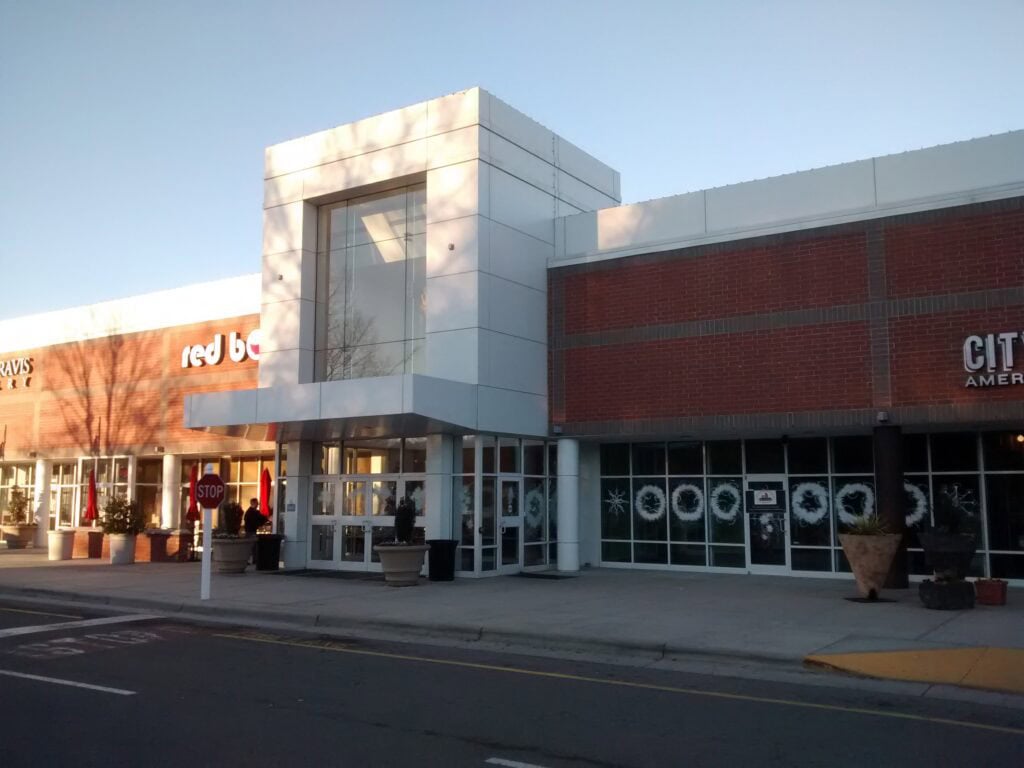
The 2010s brought more adjustments. Chapel Hill Public Library considered relocating into Dillard's former space.
The plan never materialized, as Dillard's chose to remain open as a clearance center.
Instead, the library temporarily operated inside an inline store while its main facility underwent renovations.
Around the same time, several businesses from University Square, a retail area on Franklin Street, moved into University Mall.
Among them were Fine Feathers, William Travis Jewelry, and Kidzu Children's Museum.
In late 2013, Dillard's closed for good. It was replaced with Silverspot Cinema, a luxury movie theater. During the same period, Roses, one of the mall's original junior anchors, closed.
Retailers were moving in different directions, reflecting a growing divide between malls that could adapt and those struggling to maintain traditional retail models.
From Mall to Mixed-Use: The Rebranding of University Place (2014-2021)
In 2014, University Mall was rebranded as University Place. Madison Marquette introduced the name change, signaling a broader effort to shift away from the traditional shopping mall format.
The updated branding, which includes new signage, exterior improvements, and an updated website, reflects a push toward a more open, walkable shopping and entertainment space.
Silverspot Cinema, which had replaced Dillard's, quickly became a major draw. Unlike standard theaters, it focused on premium seating, indie films, and full-service dining.
This move toward experience-based retail set the tone for future additions. However, some longtime tenants struggled to fit into the evolving model.
Southern Season, which had been an anchor since 2003, closed its University Place store in January 2020.
The company shifted to an online-only business, leaving another large vacancy in the shopping center.
The biggest shift came in June 2021, when the Chapel Hill Town Council approved a special use permit for a large-scale redevelopment.
The new plan aimed to replace parts of the existing structure with a mixed-use design, including new retail spaces, restaurants, office areas, and residential units.
By the end of 2021, the project had moved into planning phases, with initial demolition set to begin in the following years.
University Place was no longer just a shopping mall - it was on its way to becoming a mixed-use development designed to attract new tenants and long-term residents.
Demolition and Construction: A Retail Overhaul (2022-2023)
By 2022, the redevelopment of University Place had moved beyond planning and into physical changes.
Ram Realty Advisors, the company overseeing the transformation, began demolition work on portions of the existing structure.
Demolition started in late 2022, targeting areas that no longer fit the new vision.
The former Southern Season building was demolished to make room for updated storefronts, walkable pathways, and green spaces designed to attract both shoppers and long-term tenants.
The plan was to construct six new buildings, adding 350,000 sq. ft. of retail and restaurant space, 60,000 sq. ft. of office space, and a 253-unit apartment complex (900 Willow).
Major construction projects were in full swing during the summer of 2023. The area near the former Southern Season site was being repurposed, with plans for new dining and entertainment options.
Ram Realty also announced pre-leasing for the upcoming residential complex 900 Willow.
New Tenants and the Final Stretch of Development (2024-2025)
As 2024 began, construction at University Place entered its final stages. New tenants were gradually opening, and previously announced projects were nearing completion.
Among the businesses set to launch in the newly developed sections were CycleBar (a fitness studio), Fifth Third Bank, and Jeni's Splendid Ice Creams (1,000 sq.
ft. store near The Commons), Chick-fil-A (replaced K&W on Fordham Blvd, includes a drive-thru), Chase Bank, WakeMed MyCare 365 clinic
Pre-leasing began for 900 Willow in the spring of 2024, a residential development that will bring hundreds of new residents to the area.
The apartments were marketed toward professionals, students, and families looking for a walkable community with retail and entertainment options just steps away.
By mid-2024, The Commons - a 15,000-square-foot outdoor gathering space - was nearly finished.
Designed to host events, live music, and casual meet-ups, it aimed to create an environment that encouraged visitors to spend more time on the property.
Green spaces, seating areas, and art installations were integrated to complement the surrounding businesses.
Heading into 2025, the final stages of the redevelopment focus on completing infrastructure improvements and finalizing leases with new tenants.
With retail spaces filling up and residential units preparing for move-ins, University Place is nearing the end of its transition from a traditional mall to a mixed-use destination.

